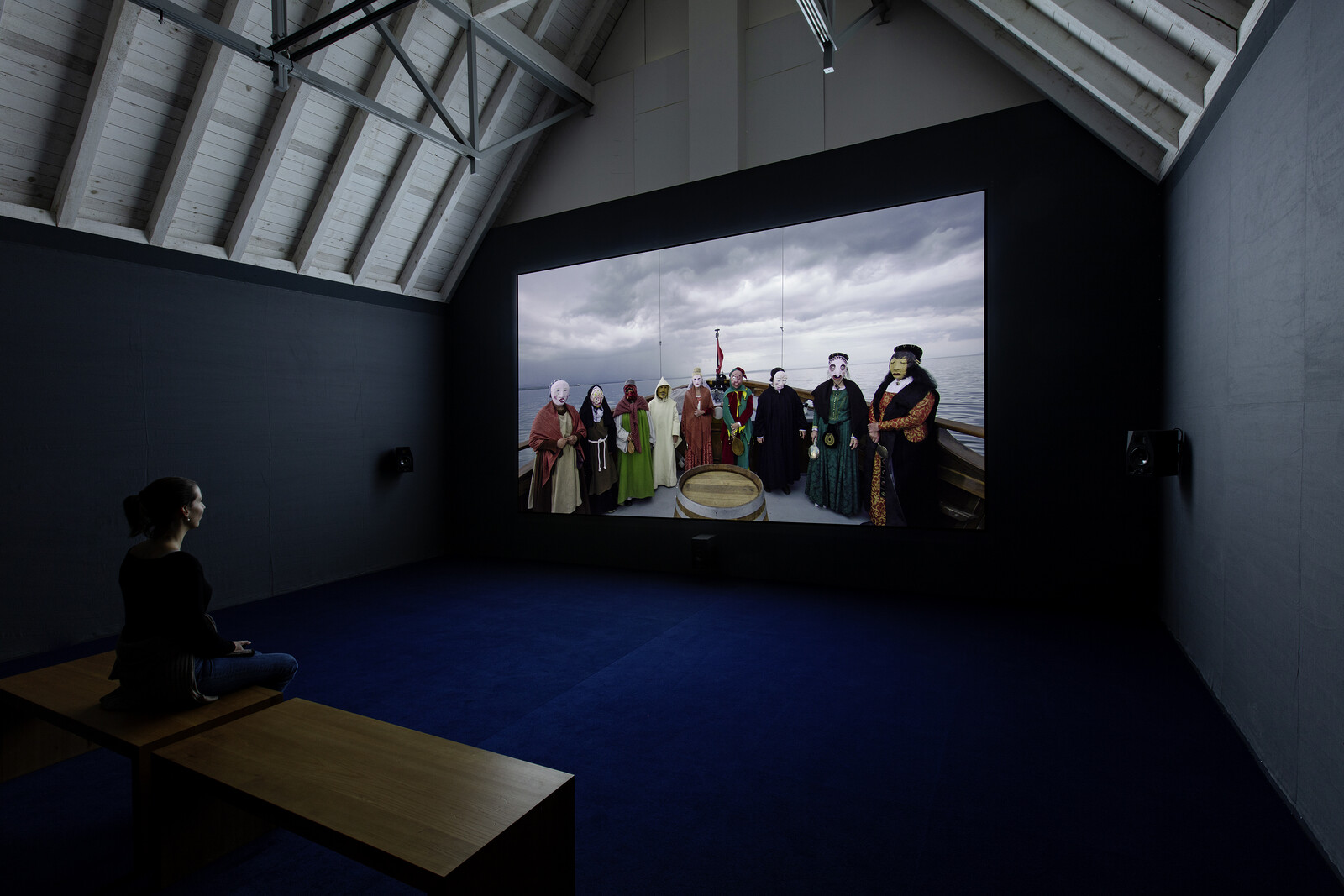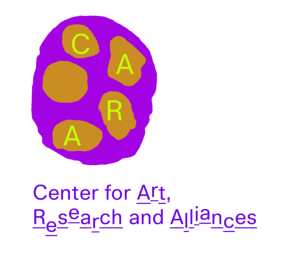Amerika
June 1–August 11, 2024
225 West 13th Street
New York, NY 10011
USA
Hours: Wednesday–Saturday 11am–6pm,
Sunday 12–6pm
CARA’s Summer 2024 exhibition, Javier Téllez: Amerika, is Javier Téllez’s (b. 1969, Venezuela; lives and works in New York) first institutional solo exhibition in New York City in nearly two decades. The exhibition showcases a newly commissioned film installation alongside a series of works related to the film, as well as a selection from a never-before-exhibited atlas of photographic images cropped and collected by the artist from illustrated magazines and books over the past twenty years.
Téllez’s practice is centered around the moving image as a medium, and includes extensive research into image creation and storytelling from the early days of cinema to the present. His work often revisits classic films, literary and philosophical texts, and myths to deconstruct familiar archetypes of perceived deviance, marginality, and ungovernability. Téllez rejects Western society’s production of otherness, and explores how all individuals are social and political actors. Through close engagement with groups composed of psychiatric patients, people with disabilities, or refugees, Téllez critiques institutional structures and fosters spaces where subjects intervene in their own representation. Their work wonders aloud: Who is counted in civil society? What are the boundaries between the normal and the pathological? And whom do these constructions presume to protect?
This solo exhibition centers around the film installation Amerika, commissioned by CARA. Drawing from cinema histories and vaudeville, Amerika mobilizes reenactment, fiction, and metaphor to respond to the ongoing exodus of millions of Venezuelans from their home, motivated by continued violence and socioeconomic collapse. Since 2014, it is estimated that more than seven million Venezuelans have left their home, with at least 60,000 arriving in New York City, and over 460,000 spread across the United States since 2022—a testament to the forced displacement of these communities as a result of economic mismanagement and populist politics, accompanied by rampant corruption, food scarcity, and high levels of crime, all heightened by dictatorial governments.
Téllez produced Amerika in collaboration with Andreina Arias, José Díaz, Luisandra Escalona, Leonardo Masa, Nazareth Merentes, Jesus Ramirez, Omar Ríos, and Mariana Vargas—a group of Venezuelan refugees currently living in New York. Téllez, himself an immigrant from Venezuela who has been living in New York since 1993, worked with these non-professional actors to produce a short film inspired by the work of Charlie Chaplin—the iconic actor and filmmaker who challenged authority and social control while advocating for social justice and human rights. Known for his slapstick comedy and social commentary, Chaplin offered humorous critiques that continue to resonate with audiences around the world. Téllez and his collaborators draw from Chaplin’s films The Immigrant (1917), Gold Rush (1925), Modern Times (1936), and The Great Dictator (1940), reenacting scenes from these films to question power, hegemony, and intolerance toward the other through a collectively developed script that uses narrative to highlight the shared concerns and experiences of migrant communities. Amerika portrays and condemns the abuse of power in totalitarian regimes, and renders both the gravity of loss and the necessity of hope that comes with fleeing one flawed paradise in search of another.
Interweaving cinema histories, social commentary, and poetics, the exhibition presents the film alongside protest signs, similar to those that can be seen in the film itself. This work is dedicated to freedom and the right to dissent without fear of repression, echoing political struggles depicted in Chaplin’s early-twentieth century films and up until the present day. Additionally, CARA will debut an archive of photographic images cropped and collected by the artist from illustrated magazines and books that explore archetypal representation of subjects like masks, mirrors, cinema screens, taxidermy, waxworks, miniatures cities, maps, dollhouses, Bunraku, and skulls. Téllez’s rigorous collecting practice generates a working library of references that record how certain visual metaphors, tropes, and references reemerge in the production of cinema and storytelling.
This exhibition is curated by CARA’s Senior Curator Rahul Gudipudi and produced by Agustin Schang, with assistance by Marian Chudnovsky and CARA’s team.
About CARA
CARA is an arts nonprofit, research center, and publisher that aims to expand public discourses and historical records to reflect art’s abundant pasts, presents, and futures. Learn more here.



